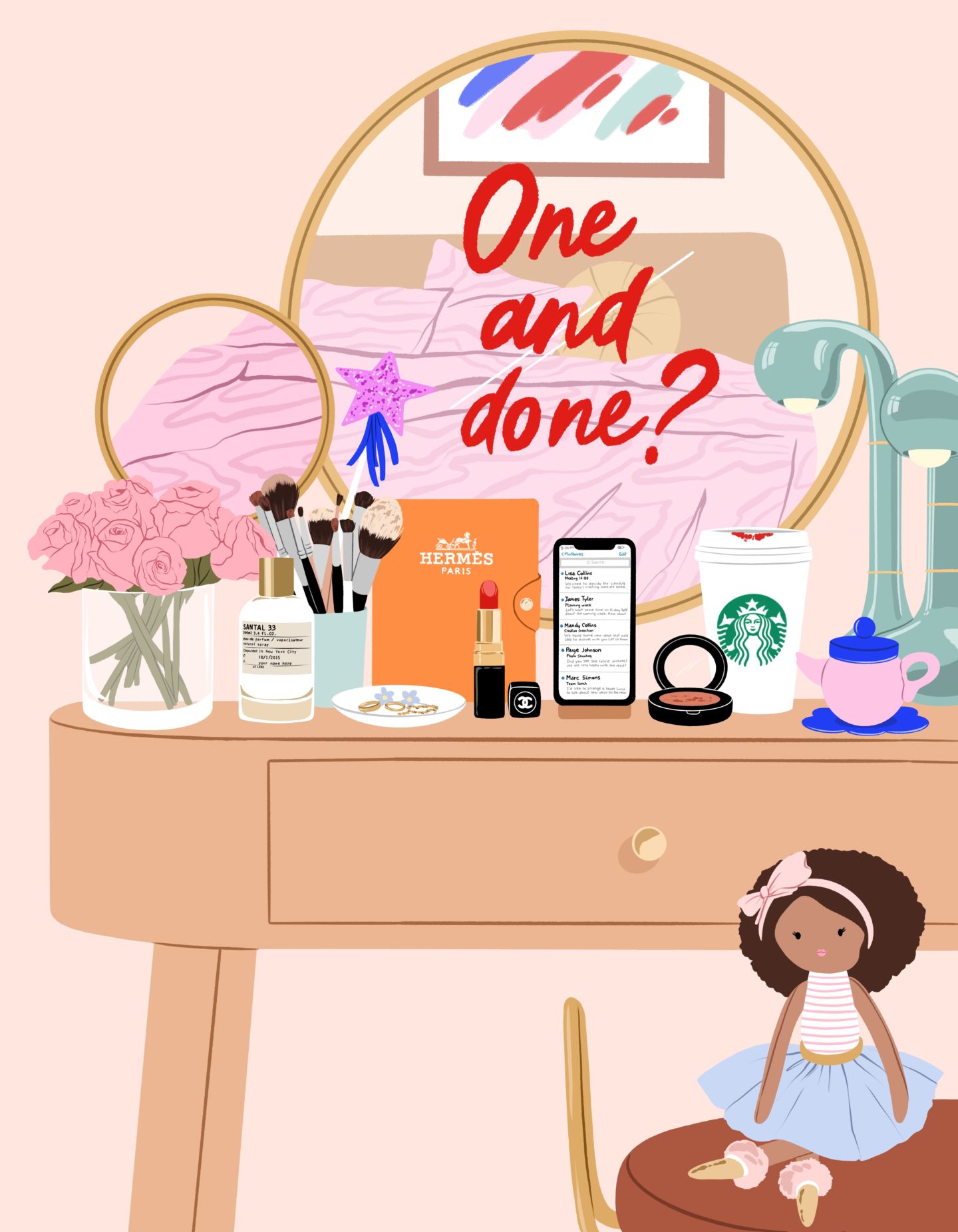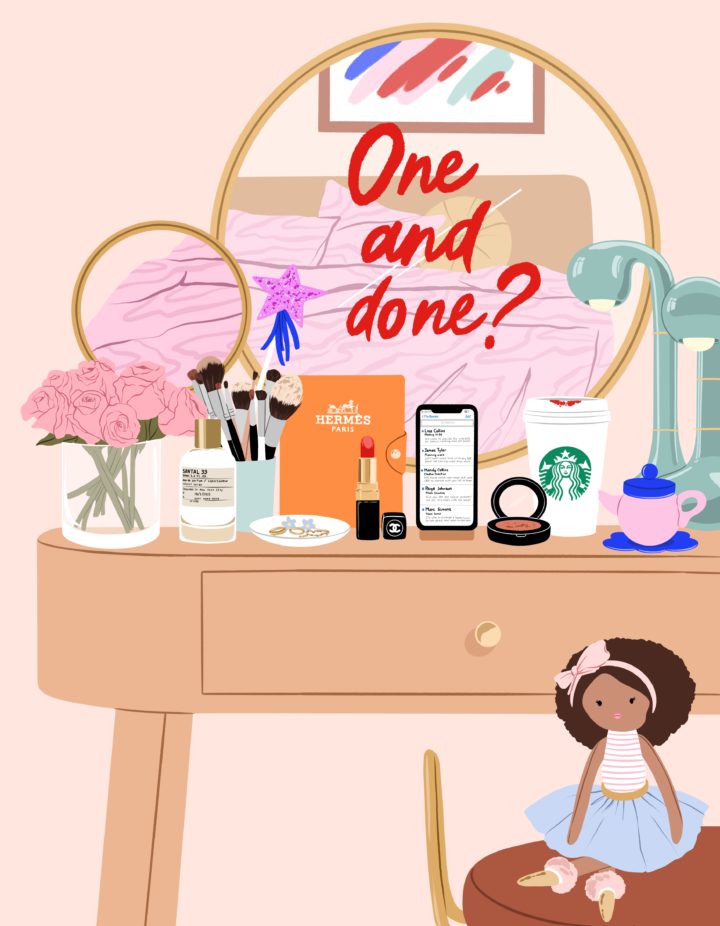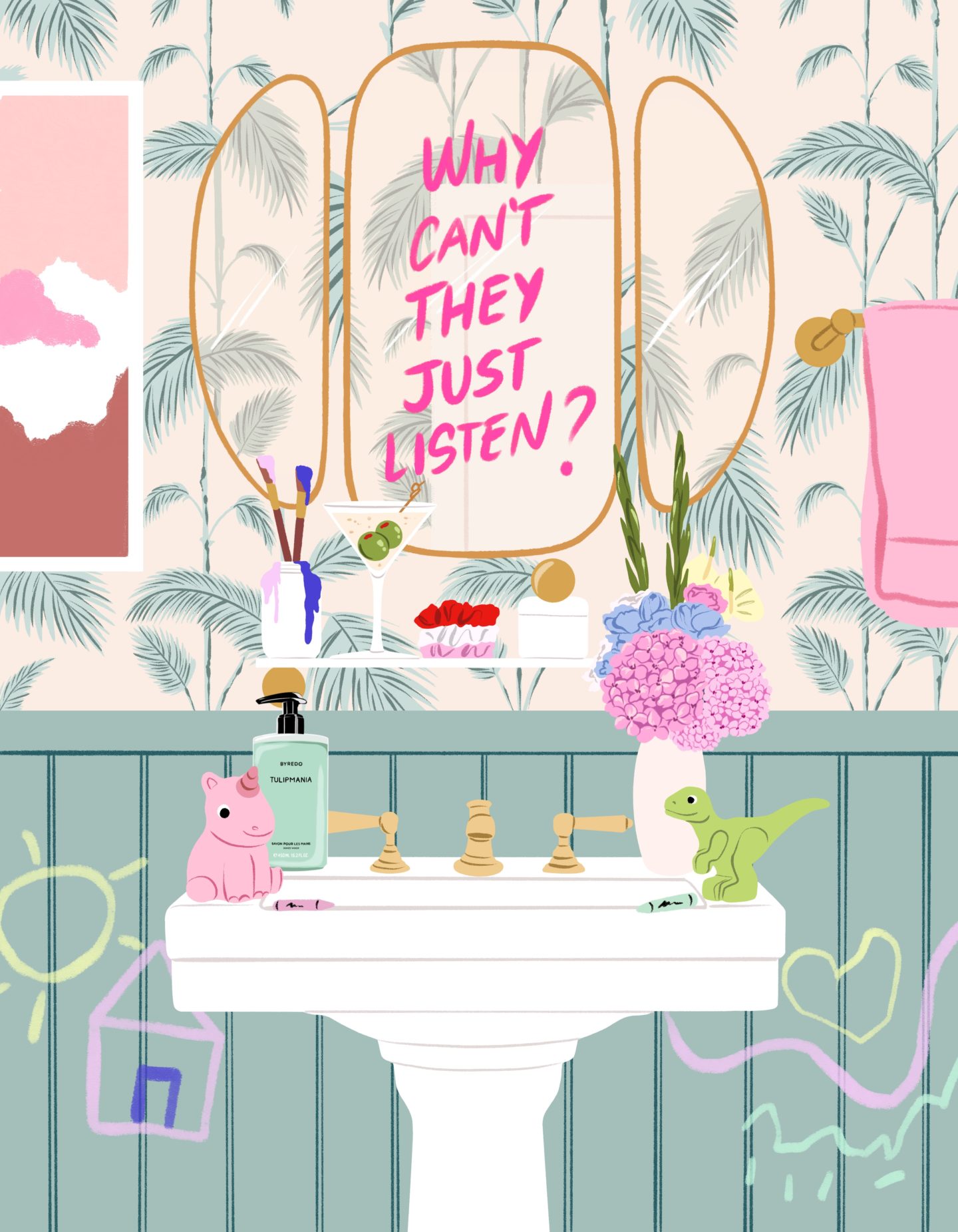In Allison Tega’s family, the pressure came around every Thanksgiving. Relatives she hadn’t seen all year would marvel at her growing toddler son and, like clockwork, probe into when she was going to “make him a sibling.” “It was so intrusive, especially coming from relatives I barely see,” says Allison. “For all they knew, we were having serious fertility problems that I didn’t care to discuss over mashed potatoes and gravy.” The truth was that Allison and her husband didn’t want another child, but they weren’t ready to say it out loud. “It felt definitive and it felt like there was a sense of shame around only wanting one,” she says. “It was easier to dismiss the conversation than have to defend my choice.”
For Janelle Williams, it was building a career that inspired her and her husband’s decision to have one child. “I’m an entrepreneur and my career is my other baby,” says Janelle, who runs a graphic design firm. “I don’t want to feel bad about that choice and I know my daughter will grow up surrounded by friends, family and people who love her, with or without a sibling.”
These days, single child households are on the rise, up from 10 million in 1972 to about 15 million in 2018, according to the U.S. Census Bureau. Yet, for so many women, it’s just another item to add to the guilt list. Parents of only children tend to fear they’re denying their kids a playmate or a companion, and that their children will have to shoulder the burden of dealing with aging parents all by themselves. But, like every decision surrounding parenthood, having one child can be a total blessing and an extremely personal choice that needs no justification. “Nearly a quarter of children in the U.S. grow up in one-child families,” says Jean Fitzpatrick, a relationship therapist and New York-based psychotherapist “Despite any stereotypes about only children, current research tells us they can be just as well-adjusted as kids with siblings, and sometimes more focused and creative.”
“Despite any stereotypes about only children, current research tells us they can be just as well-adjusted as kids with siblings, and sometimes more focused and creative.”
In a story for Parents.com, Susan Newman, PhD and author of Parenting an Only Child: The Joys and Challenges of Raising Your One and Only said, “the most common myth – that ‘only child syndrome’ makes them spoiled, bossy and socially inept – hasn’t panned out. Studies show that only children are no different from other kids. Specifically, they’re not more spoiled, lonely, selfish, or overly dependent.”
So solo child mamas, you’re not alone. And if you want to enrich their lives socially, Jean recommends just that – lots of (Covid-friendly) socialization. “You can help your singleton thrive by making sure they have regular playmates and encouraging them to be playful and independent as they grow,” she says.
And remember, if friends or family are questioning your plan, know that family size is a deeply personal decision that you never have to justify. “Given the time, money, and energy required to raise a child, it’s your opinion that matters,” says Jean. “If you’re confident you’ve thought this through, you don’t owe anyone an explanation.”




